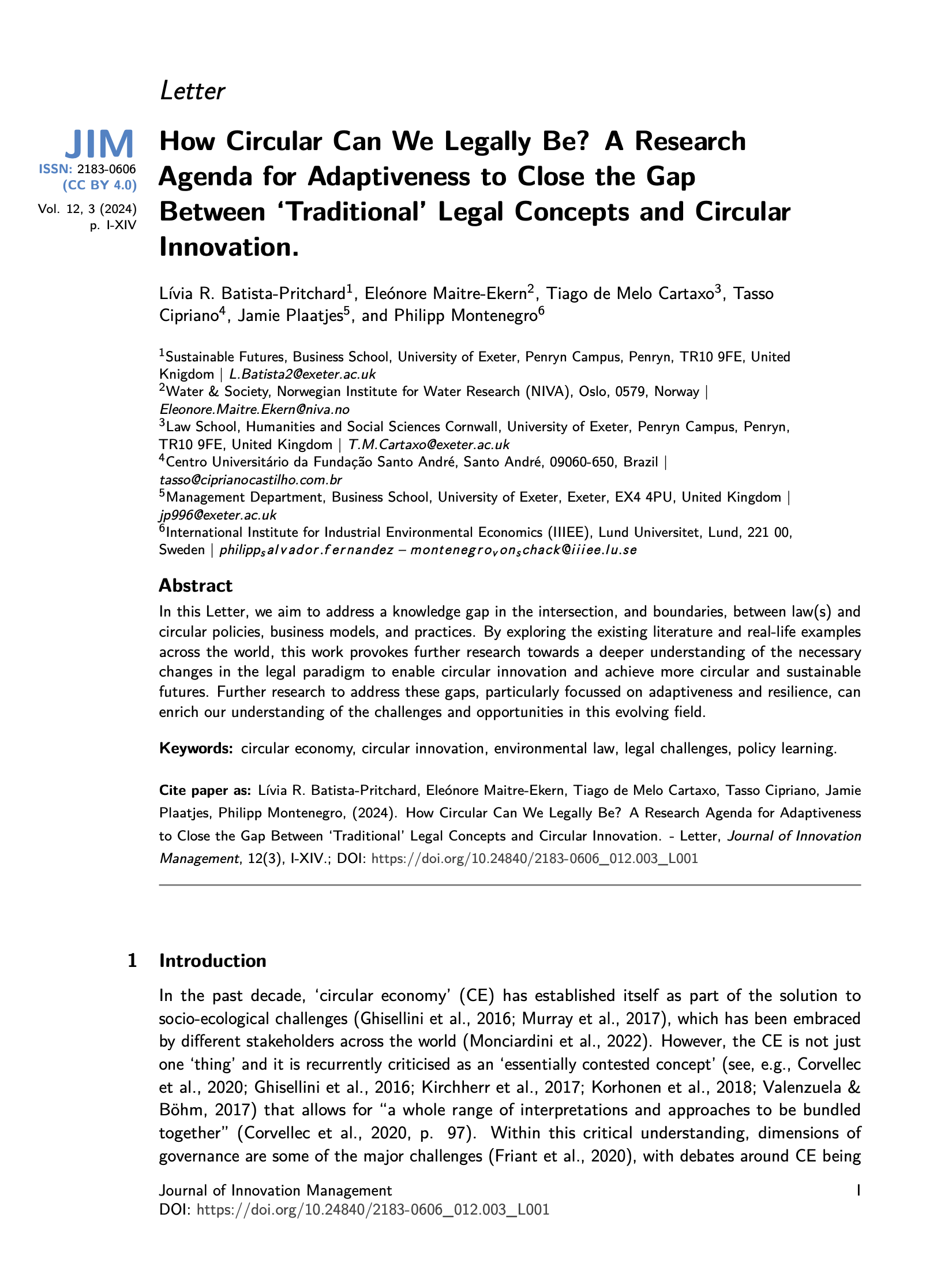How Circular Can We Legally Be? A Research Agenda for Adaptiveness to Close the Gap Between ‘Traditional’ Legal Concepts and Circular Innovation.
Main Article Content
Abstract
In this Letter, we aim to address a knowledge gap in the intersection, and boundaries, between law(s) and circular policies, business models, and practices. By exploring the existing literature and real-life examples across the world, this work provokes further research towards a deeper understanding of the necessary changes in the legal paradigm to enable circular innovation and achieve more circular and sustainable futures. Further research to address these gaps, particularly focussed on adaptiveness and resilience, can enrich our understanding of the challenges and opportunities in this evolving field.
Article Details
Authors who publish with this journal agree to the following terms:
- Authors retain copyright and grant the journal right of first publication with the work simultaneously licensed under a Creative Commons Attribution License that allows others to share the work with an acknowledgement of the work's authorship and initial publication in this journal.
- Authors are able to enter into separate, additional contractual arrangements for the non-exclusive distribution of the journal's published version of the work (e.g., post it to an institutional repository or publish it in a book), with an acknowledgement of its initial publication in this journal.
- Authors are permitted and encouraged to post their work online (e.g., in institutional repositories or on their website) prior to and during the submission process, as it can lead to productive exchanges, as well as earlier and greater citation of published work (See The Effect of Open Access).

